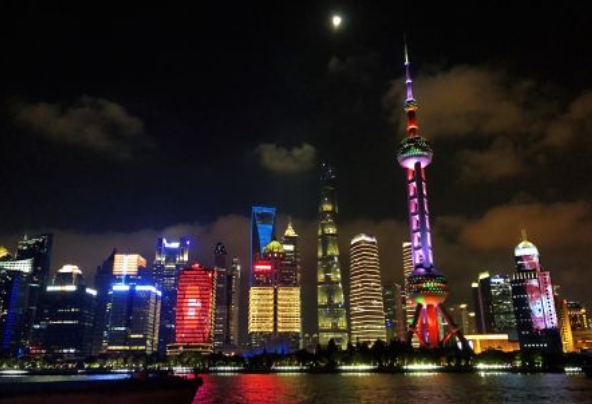Protectionism weakens US trade, experts say
Photo shows a view of Nansha Port in Guangzhou, South China"s Guangdong province. [Photo provided to chinadaily.com.cn]
Protectionist US trade policy in recent years has produced a bigger trade deficit and job losses, weakened the country"s productivity and has diminished its diplomatic leadership, trade experts say.
"The protectionist policy, just during the (Donald) Trump administration, added over one hundred billion dollars to the US trade deficit," said Jack Midgley, principal of the global consultancy Midgley & Co and an adjunct associate professor in the Security Studies Program at Georgetown University, Washington.
 【资料图】
【资料图】
"That"s an immediate adverse impact. The job losses associated with that impact are in the hundreds of thousands of manufacturing jobs. So that"s another negative impact on the US economy. So, it turns out employment, trade deficit, investment in manufacturing, infrastructure, and so forth, all extremely negative."
Gary Clyde Hufbauer, a senior fellow at the Peterson Institute for International Economics in Washington, said: "This trend has a decidedly negative impact on US productivity growth, now less than 0.5 percent annually. In the good old days it was nearly 2 percent annually. And US diplomatic leadership is badly weakened by the current trend."
In a policy brief titled "Have trade agreements been bad for America?" published last month, Hufbauer and Alan Wolff, another senior fellow at the Peterson Institute, said "expanded trade has greatly benefited the US economy" and that "protectionism is not the solution".
According to the brief, global trade and liberalization have helped lift hundreds of millions of people out of poverty worldwide and helped raise US GDP tenfold since World War II, but protectionism under president Donald Trump and his successor President Joe Biden undermined US authority globally.
"US-China trade has been very beneficial for the US over the past two decades," Hufbauer said. "I am very sorry this is not recognized by most US political leaders."
"Standstill" expected
Hufbauer said he expects "a standstill" in US-China trade relations over the next two years. "Not get much worse, but not get much better, either."
Hufbauer forecasted that Republicans in the US Congress would continue to call for new international trade agreements, and voiced skepticism that Biden or the US Trade Representative Katherine Tai would respond.
Instead, they will continue to negotiate the "Indo-Pacific" economic framework, the initiative on trade with Taiwan, and try to calm the electric vehicle dispute with the European Union, he added.
Hufbauer said he lacked optimism about any "big move" by the US in international trade. He forecast "a reversal by Biden" to seek US admission to the Comprehensive and Progressive Agreement for Trans-Pacific Partnership.
"I give this only a 25 percent chance. Another big move would be a free trade agreement with the UK.Again, only a 25 percent chance."
The US would continue to impose strict sanctions on Russia, Hufbauer said.
Midgley forecasted there would be no big US moves in advancing trade this year. Reasons include the macroeconomic environment and the domestic political regime, he said.
"I don"t believe there will be any big moves in 2023. … Unfortunately, not much room in that environment for new free trade agreements. And similar factors will make it difficult to make progress on US-China trade in one or two years.
"And the prospect of a recession next year, plus the political environment, which is a Republican Congress. I think it"s very unlikely that in the next 12 to 24 months … I doubt very much that there will be advances … in the area of free trade with China."
The most important reason for "no big move" with China or other trade partners is a US policy trend that is not conducive to trade, Midgley said.
"What is happening is that the United States is continuing to emphasize energy independence, massive increases in defense spending and defense investment, and a lot of that is crowding out attempts to liberalize trade policy. … don"t see the political room or the economic incentive for the American government to do much in the area of free trade."
Political pressure from the US House of Representatives, now in Republican hands, will favor protectionism, Midgley said.
He expressed concern that the first thing the House Speaker Kevin McCarthy wants to do is "run off to Taiwan and put fingers into the eyes of the Chinese government", which would hurt US-China relations and reduce the chance of bilateral conversation on trade.
下一篇:最后一页
广告
X 关闭
- Protectionism weakens US trade, experts say
- 宜兴会计中级职称在哪里报名?附报名流程
- 简讯:小辽说天气丨升温还在继续,下一轮冷空气啥时来?
- 广联航空2022年预计净利1.35亿-1.65亿同比增长252%-330% 航空零部件业务收入提升 环球快播报
- 网红博主烹食噬人鲨被罚12.5万是什么情况 速看料
- 《满江红》官方连续发文回应争议扩散:统编教材删除岳飞满江红?从未选编|环球快看
- 头条焦点:黄埔文冲社区:老祠堂“绣”出幸福景 城中村变成新地标
- 全球观点:返乡置业遇冷!今年春节假期15城新房成交量同比下降58.4%
- 世界快消息!【空洞骑士】乌恩——沉眠的大地之神 空洞骑士长篇剧情分析与个人理解(27)
- 西宁元宵节哪些医疗机构24小时营业?|每日关注
- ChatGPT又赢了:带动股价涨三倍,成考试神器_环球热文
X 关闭
-

-
京张高铁每日开行17对冬奥列车
京张高铁每日开行17对冬奥列车 预计冬奥服务保障期运送运动员、技术官员、持票观众等20万人次 2月6日,2022北京新闻中心举行“北
-

-
北京冬奥会开幕式上 小学生朱德恩深情演绎《我和我的祖国》
北京冬奥会开幕式上 小学生朱德恩深情演绎《我和我的祖国》 9岁小号手苦练悬臂吹响颂歌 2月4日晚,在北京冬奥会开幕式上,9岁的
-

-
2022北京冬奥会开幕式这19首乐曲串烧不简单
多名指挥家列曲目单 再由作曲家重新编曲 本报专访冬奥开幕式音乐总监赵麟 开幕式这19首乐曲串烧不简单 “二十四节气”倒计时、
-

-
“一墩难求” 冰墩墩引爆购买潮
设计师:没想到冰墩墩成爆款一墩难求冰墩墩引爆购买潮 北京冬奥组委:会源源不断供货北京冬奥会吉祥物冰墩墩近日引爆购买潮,导致一墩难求








